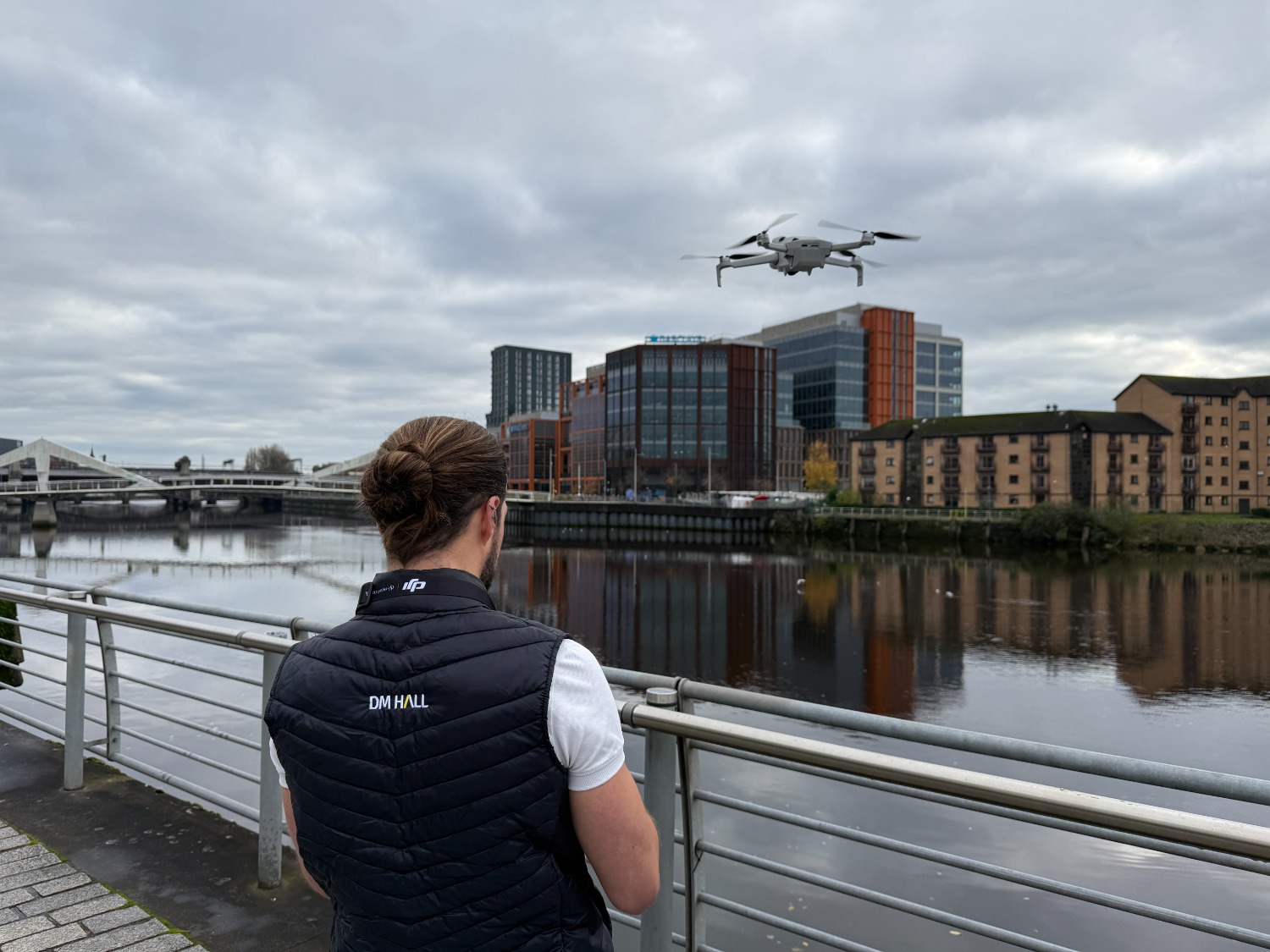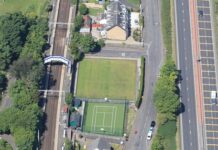
DM Hall has announced it is rolling out an in-house drone surveying service across its nationwide building surveying teams.
The firm has been running a training service for its surveying professionals over the past several months and has now gone live with the new service which it said is a ‘game-changer’ in terms of time, accuracy, and safety.
DM Hall, which has a network of offices across the UK, has trained six members of its building surveying team in Glasgow to Civil Aviation Authority (CAA) standards and is now rolling the programme out to its teams in Edinburgh, Perth, Aberdeen, and the north of England.
The new capability is designed to allow the firm to provide clients with more accurate advice which will enable them to make informed decisions on potential acquisitions, as well as repairs and maintenance. It will focus primarily on commercial property, but will also be available to residential clients requiring more detailed surveys.
Martin Elsby, a partner at DM Hall’s building surveying team in Glasgow, who has been masterminding the project, said, “This initiative will help us maintain and improve service delivery in a safe and efficient manner and keep us ahead of the technical changes which are happening at pace across the profession. Our surveyors have met all CAA requirements and have been trained in the key principles of drone flying, with a substantial emphasis on unmanned aerial vehicle [UAV] safety around elements such as roads and pylons, as well as awareness of privacy issues.
“Drone use will allow our surveyors to collect high-definition images and accurate data to identify potential challenges and issues with a building early on, allowing clients to address them before they become costly problems.”
DM Hall will initially use a DJI Mini Pro, a lightweight, foldable camera drone with 4K/60fps video, 34 minutes of flight time and front, rear and downward obstacle avoidance technology. The team has already surveyed a commercial property in the north of Glasgow which had suffered substantial water ingress during storms and identified the defects which were causing the problem. It has also worked on an industrial site in the central belt to find a range of defects not visible from ground level.
Martin said, “Bringing the service in-house will facilitate faster turnaround times on instructions, contribute to cost and efficiency savings and reduce the firm’s reliance on outside contractors. The drones can operate internally as well as carrying out exterior inspections, making them ideal for less accessible buildings, such as churches, or large factories. Their accurate self-levelling equipment means that they can be used in all but the most extreme conditions.”








